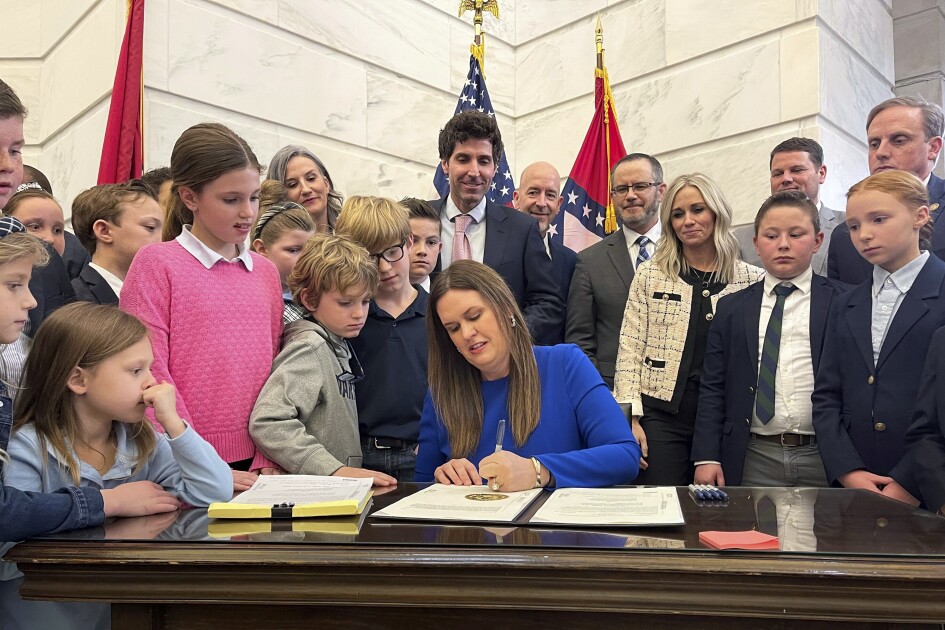A federal appeals court docket has dominated that Arkansas could implement its legislation prohibiting academics from “indoctrination” of scholars with crucial race concept or different so-called “discriminatory” ideologies.
A 3-judge panel of the U.S. Court docket of Appeals for the eighth Circuit, in St. Louis, unanimously vacated a federal district court docket’s preliminary injunction blocking the 2023 legislation, which is considered one of a handful nationwide that echoes anti-CRT rhetoric.
Some 17 different states, together with Iowa and North Dakota (which like Arkansas are a part of the eighth Circuit), have comparable legal guidelines, government orders or different measures. President Donald Trump in January issued an government order aimed toward barring “radical indoctrination” in Okay-12 faculties, together with any “discriminatory fairness ideology.”
The Arkansas legislation requires state training officers to make sure faculties are in compliance with federal civil rights legal guidelines by checking for curricular supplies that battle with the precept of equal safety below the legislation or encourage college students to discriminate based mostly on somebody’s protected traits.
Academics who violate the legislation might lose their instructing licenses. The legislation exempts instructing about “problems with the day” and permits discussions concerning the concepts and historical past of ideas described within the legislation. The state argued in court docket papers that the legislation “doesn’t prohibit instructing about Essential Race Principle,” solely “instructing that may indoctrinate college students with [such] ideologies.”
Two highschool academics, two highschool college students, and the Arkansas chapter of the NAACP sued over the legislation. The academics argued the legislation was so obscure that it violated the 14th Modification’s due-process clause, whereas the scholars argued that it violated their First Modification free speech proper to obtain info.
A federal district choose determined towards the academics’ vagueness declare as a result of the speech at situation was authorities speech. However the choose issued a preliminary injunction based mostly on the scholars’ First Modification declare, ruling that the legislation blocked info they’d beforehand obtained. The choose relied partially on a 1982 eighth Circuit determination, Pratt v. Unbiased College District No. 831, which held that “college boards would not have an absolute proper to take away supplies from the curriculum” if the elimination “was meant to suppress the concepts expressed” within the eliminated supplies. (That case concerned a college district’s elimination of a movie model of the 1948 quick story “The Lottery,” by Shirley Jackson.)
Arkansas Gov. Sarah Huckabee Sanders, a Republican who signed the measure into legislation as half of a bigger training invoice, celebrated the determination on X, calling it a “massive win for widespread sense, training freedom—and oldsters who simply need our faculties to show youngsters tips on how to assume, not what to assume.”
No ‘supercharged proper’ for college students to obtain info, court docket says
In its July 16 determination in Partitions v. Oliva, the eighth Circuit panel vacated the preliminary injunction.
The court docket agreed there’s a proper of scholars to obtain info, however “that proper can’t be used to require the federal government to offer a message it now not is keen to say” and “the federal government could change the message it promotes in response to the political course of.”
“College students don’t possess a supercharged proper to obtain info in public faculties that alters these ideas,” stated the opinion by Decide L. Steven Grasz, a first-term Trump appointee. (The opposite panel members have been appointed by Presidents George H.W. Bush and George W. Bush.)
“Simply as bizarre residents can not require the federal government to specific a sure viewpoint or preserve a previous message, college students can not oblige the federal government to take care of a selected curriculum or supply sure supplies in that curriculum based mostly on the free speech clause,” Grasz stated.
The court docket stated the eighth Circuit’s 1982 Pratt determination has been undermined by numerous U.S. Supreme Court docket rulings since then bolstering the government-speech doctrine, which holds that the federal government is permitted to have interaction in viewpoint discrimination when it speaks.
“Finally, if we adopted the scholars’ method, a authorities couldn’t efficiently defend its determination to alter the curriculum by arguing that it was responding to the voters and the political course of,” Grasz stated. “We decline the scholars’ invitation to make the varsity curriculum uniquely static and unaccountable.”

